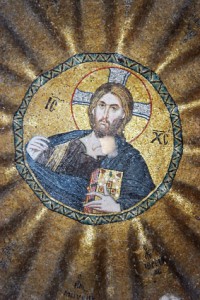In a few weeks I leave for a trip to Byzantium. Of course it’s not called that anymore. It’s current handle is Istanbul, and as was discussed in a recent blog post, it was heart of Christendom for 1,123 years.
We will begin with 3 days in Istanbul, along with one day in Cappadocia, before starting a Black Sea cruise that includes a stop in Ephesus before ending in Athens.
I’ve wanted to do this trip for years, and in preparation for it (and the blogging I plan on doing during the trip) I’ve been reading about the Byzantine Empire. Here’s what I’ve recently read and/or am current reading in preparation for the trip:
- A Short History of Byzantium, John Julius Norwich
- The Secret History, Procopius
- Justinian’s Flea, William Rosen
- Istanbul: The Imperial City, John Freely
- The Later Roman Empire, Ammianus Marcellinus
- Theodosius: The Empire At Bay, Stephen Williams & Gerard Friell
- Constantine and Eusebius, Timothy D. Barnes
- The Alexiad, Anna Komnene
For those looking for a good introduction to the Byzantine Empire, I strongly recommend Norwich’s book. It’s well-written and tells the fascinating story of Christianity’s first experiment in empire in a way both engaging and interesting. This book is actually an abridged version of Norwich’s three volume treatise on Byzantium.
As the kingdom of God expands and Christians are elevated to positions of authority they will be foolish not to learn from the curriculum provided us by the past. The Byzantine Empire provides a rich course. GS


